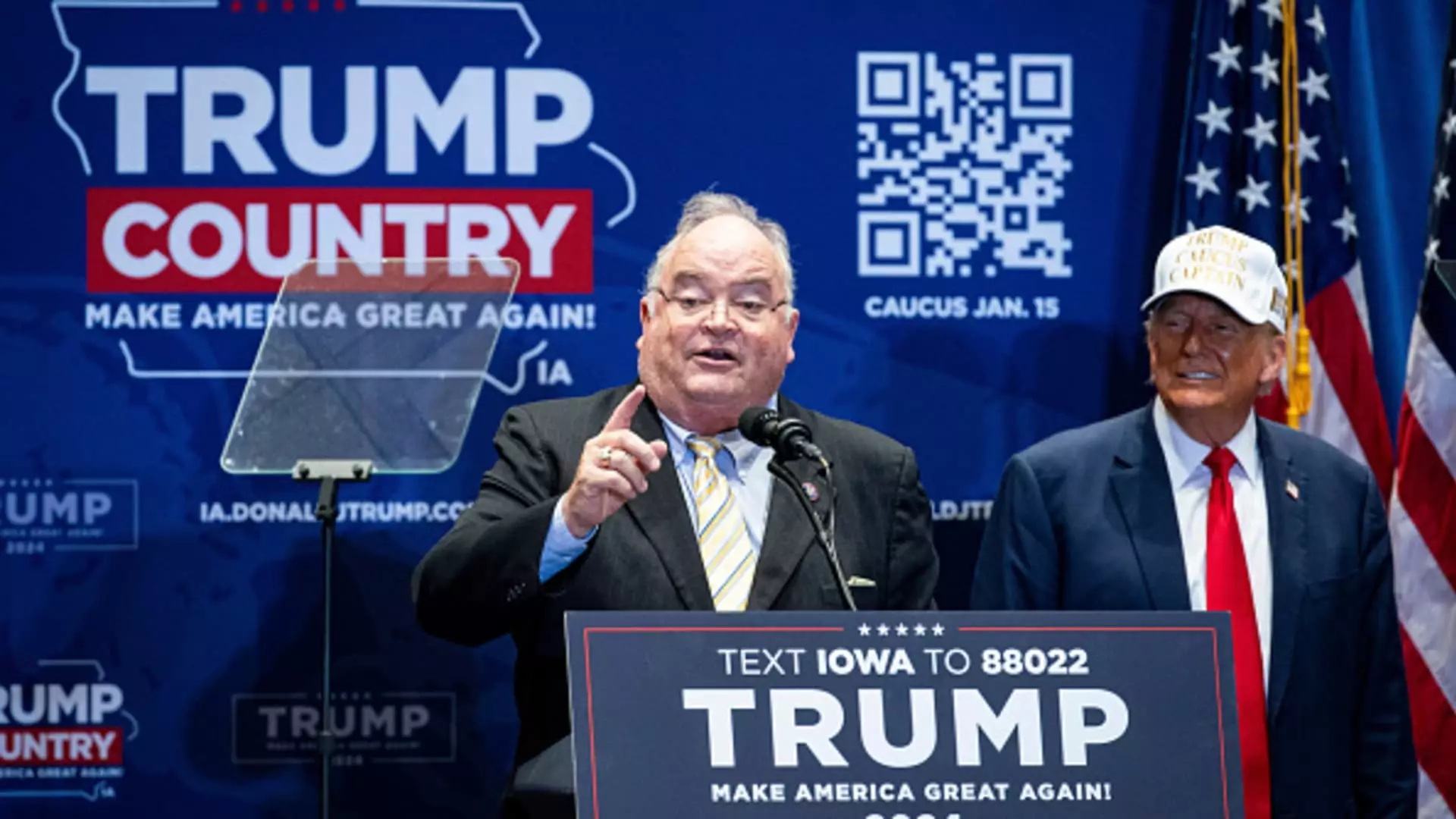The recent confirmation of Billy Long as the new IRS Commissioner by the Senate marks a pivotal juncture for American taxation amidst significant agency cutbacks. Selected by President Donald Trump, Long’s appointment has sparked debate and uncertainty within both political and financial sectors. With a party-line vote predominantly supporting his nomination, it is clear that partisan divides continue to widen, especially on issues that critically affect everyday taxpayers.
Long, a former Congressman from Missouri, faced intense interrogation during the confirmation process—especially from Democrats who raised concerns about his loyalty to Trump and his connections to questionable tax credits. This scrutiny isn’t merely a political game; it represents a genuine fear about the politicization of the IRS in ways that could erode public trust in the agency’s ability to fairly assess and collect taxes.
Politicization and Public Trust
During his Senate Finance Committee testimony, Long made assertions that the IRS “will not, should not be politicized on my watch.” Such statements, while reassuring at first glance, prompt skepticism among those who understand the inherent risks that come with placing individuals loyal to a politically charged administration at the helm of an essential bureaucratic institution.
In an era where misinformation is rampant, voters and taxpayers need to be able to trust that institutions like the IRS will operate independently of political interference. Long’s assurances, though welcome, must be matched with actions that consistently uphold the values of neutrality and fairness.
Furthermore, the reality is that the IRS is already facing overwhelming challenges. The fiscal environment portrayed by the Trump administration is deeply contradictory. While Long proposed a vision of modernization and efficiency within the agency, he is stepping into a reality defined by significant budget cuts and personnel reductions that will likely hinder any attempt to improve operational efficacy.
The Republican Gambit on IRS Funding
Long assumes leadership at a time when the IRS is reeling from a 37% budget slash, as outlined in Trump’s fiscal 2026 budget proposal. The consequences of these cuts cannot be overlooked; they are fundamentally tied to the agency’s ability to effectively carry out its mandate. A significant decrease in staff means fewer audits, less enforcement against tax dodgers, and, ultimately, a growing “tax gap” estimated at a staggering $696 billion for the 2022 tax year.
Even if Long intends to streamline operations, he will likely be constrained by cuts that impede staff levels and necessary technological upgrades. The notion that automation and “smarter IT” could fill the gaps is a hopeful, but ultimately naive, approach given the complexities of managing an agency that deals with a diverse taxpayer base—from corporate giants to individual low-income families.
What Lies Ahead for Taxpayers?
As changes unfold under Long’s appointment, taxpayers should brace themselves for a turbulent future filled with uncertainty. In addition to cuts, upcoming changes in tax legislation—particularly those proposed in the “big beautiful” spending bill—could impose new administrative burdens on an already stretched-thin IRS. The required precertification for qualifying children to claim tax credits, for instance, could introduce a plethora of complications when the agency desperately needs to focus on collection rather than added paperwork.
The overarching theme that emerges from this scenario is one of anxiety and trepidation. The promise of enhanced efficiency and oversight rings hollow in the context of heavy-handed budget cuts and administrative overload.
Amidst partisan cheerleading from Republicans, the reality is that this structure may inadvertently favor high-net-worth individuals and corporations who can afford to engage in complex tax strategies and loopholes, while the working class often remains vulnerable to scrutiny and increased burden.
As Billy Long steps into his new role, taxpayers across America will be watching with bated breath, hoping that he can truly enact the positive changes he purports to pursue. However, skepticism remains high—because in politics, actions speak louder than words.

